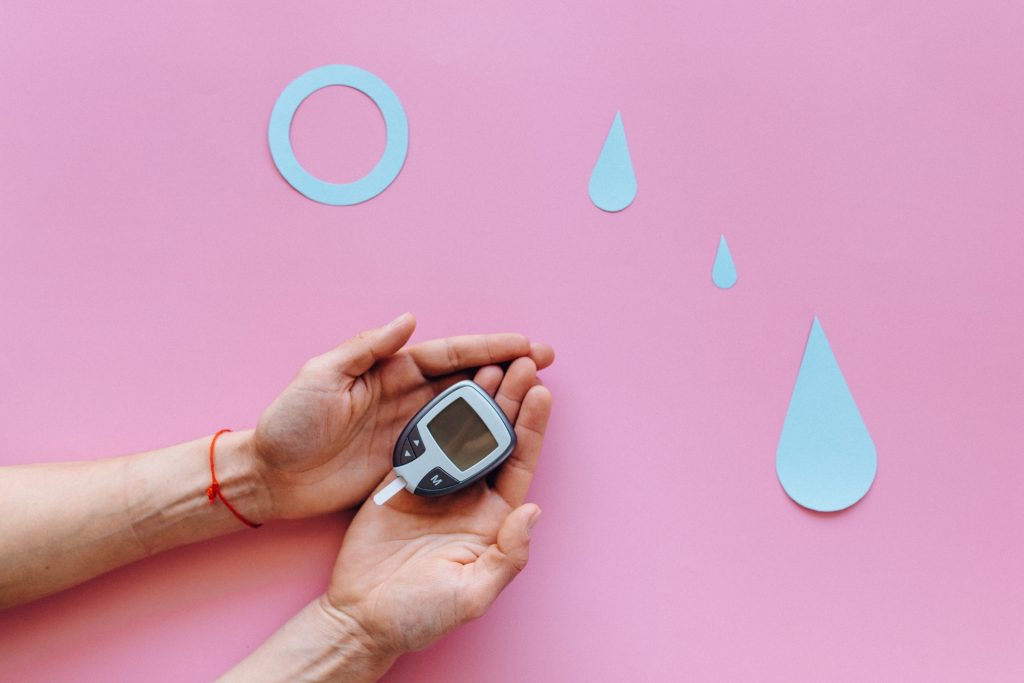
It’s 2023, and I’m determined to make it the year that I become healthier and learn how to manage my INR level.
I’ve already made lifestyle changes, such as exercising more, eating better, fasting and praying, and taking my medications as prescribed. I’m also keeping detailed records of my INR levels, so I can track my progress and discuss it with my healthcare provider. Not only that, but I’m also taking steps to reduce any potential triggers, such as avoiding certain foods or activities that may negatively affect my INR level. Besides these lifestyle changes, I’m also exploring alternative therapies such as herbal supplements, acupuncture, and meditation. I’m also looking into getting regular check-ups at my doctor’s office to ensure that I am managing my INR level effectively. I hope that the combination of these lifestyle changes, my faith in Jesus Christ and prayers, alternative therapies, and regular monitoring will help me manage my INR level and improve my health in 2023.

Photo by Nataliya Vaitkevich
Introduction
Welcome to the 21st century! Times have changed and so have we. Investments, career opportunities, and technology have all evolved over the years and health is no exception. As we look ahead to 2023, there are many ways to improve our health, with a conscious management of our internal nutrition levels (INR) being one of them. In this blog post, we’ll look at how to manage INR and effectively improve our health in the coming year. We’ll discuss essential tips to assess and maintain nutritional levels, as well as the importance of regular check-ups to keep abreast of changes and health statuses. Read on for more information about what we should all do to set ourselves up for improved health in 2023!

Photo by Madison Inouye
1. Establishing a Health Plan for My INR Levels
Living with a condition that affects blood clotting, such as atrial fibrillation or a mechanical heart valve, can be a challenge. One way to best manage it is to monitor and regulate one’s INR level. INR stands for International Normalized Ratio, and it is a measure of how quickly a person’s blood clots are. Achieving and maintaining an ideal INR level can help reduce the risk of life-threatening bleeding events. With the right approach and tools, managing one’s INR level can be relatively easy. The first step is to work with one’s healthcare provider to develop an individualized health plan. This plan should include regular blood tests to monitor INR, a medication plan, and guidance on lifestyle changes. Setting up a routine for blood tests is critical for monitoring INR. A blood sample will be taken and sent to a laboratory for testing. Sometimes, your doctor may also use an in-office device to get an immediate result. Based on the results of the test, your doctor may adjust your medication dosing to maintain ideal INR levels or suggest lifestyle changes. If you take blood thinners, it’s important to understand the drug and know the signs and symptoms of dangerous side effects before starting the medication. In addition, any new health products, supplements, or over-the-counter medicines should first be checked with your doctor to make sure they won’t interfere with your INR. The good news is that with the right health plan and commitment to safety, you can set yourself up to maintain healthy INR levels throughout the year. Taking charge of your health now will help you create a path to improved health in 2023.
2. The Benefits of Optimizing My INR Levels for My Overall Health
For individuals with blood thinning conditions, managing their INR levels is essential for understanding and preserving their overall health. INR stands for International Normalized Ratio, and it is a measure of how long a particular blood sample takes to clot. The longer the clotting time, the higher the INR result, which shows thinning blood. Having a balanced INR level can help to reduce the risk of stroke, heart attack, and kidney damage. It can also reduce the frequency and severity of internal bleeding and bring about improved mental clarity and cognition, as well as a better night’s sleep. To achieve these benefits, it is important to keep INR levels in the range recommended by a healthcare professional, typically between 2 and 3.5. Achieving and maintaining balanced INR levels requires collaboration between the patient and the healthcare team, as well as a comprehensive understanding of the potential long-term risks associated with the condition. For patients with INR levels above 3.5, the team may suggest lifestyle changes and implement a treatment plan. This often includes dietary changes, such as limiting foods high in vitamin K and monitoring the drugs that thin the blood, such as warfarin and other anticoagulants. In maximizing the benefits of optimal INR levels, prevention is often the best way to avoid any problems. This means taking the right medications, eating a well-balanced diet, limiting alcohol intake, and exercising regularly. With mindful effort, it’s possible to manage INR levels successfully and improve overall physical and mental health in the years to come.
3: Understanding My Risk Factors for INR Inaccuracies
The International Normalized Ratio (INR) is a measure of how long it takes for blood to clot. It’s used to assess a person’s risk of blood clotting or other clotting disorders. As blood clotting can be a serious medical issue, it’s important to keep your INR levels under scrutiny. In this article, we’ll be exploring how to understand your risk factors for INR inaccuracies, in order to effectively manage your INR levels and improve your health in 2023! The first step in understanding your risk of INR inaccuracies is to assess your family history. Blood clotting disorders can often run in families, so it’s important to be aware of any potential genetic history of clotting issues. With this information in hand, you can take steps to better manage your INR levels, such as by tracking your INR levels regularly and talking to your doctor about any concerns that you may have. Besides family history, medications can also have an effect on INR levels. Blood thinners, for example, can help reduce a person’s risk of developing blood clots and stroke, but they may also have a negative impact on INR levels. If you’re taking any blood-thinning medications, it’s essential to work closely with your doctor to monitor your INR levels and make sure that your treatment plan is safe. Finally, diet can also play a role in the accuracy of your INR levels. Certain foods, such as leafy green vegetables, nuts, and fish, are known to improve blood clotting and reduce the risk of clotting disorders. Therefore, it’s a good idea to ensure that you’re including these items in your diet in order to maintain optimal INR levels. By understanding your risk of INR inaccuracies and taking proactive steps to monitor your INR levels, you can stay ahead of any potential health issues and make strides toward improved health in 2023. Taking the time to assess your family history, keep track of your medications, and maintain a balanced diet can all help you to confidently manage your INR levels and stay healthy.
As we look to the future and strive for better health in 2023, it is critical that those with mechanical heart valves, like I am, take extra care of their bodies. The importance of managing our INR level cannot be overstated; a properly regulated INR level helps us stay healthy and avoid complications from our condition.
It’s difficult to remain focused on taking care of ourselves when life throws curveballs, but there is hope! We can find strength in God’s promises—He will never leave or forsake us (Deuteronomy 31:6). He has promised to give us the power and courage to face any challenge head-on (Philippians 4:13). With His help, we can make sure that our hearts are given proper attention so that we may experience good health this coming year.






